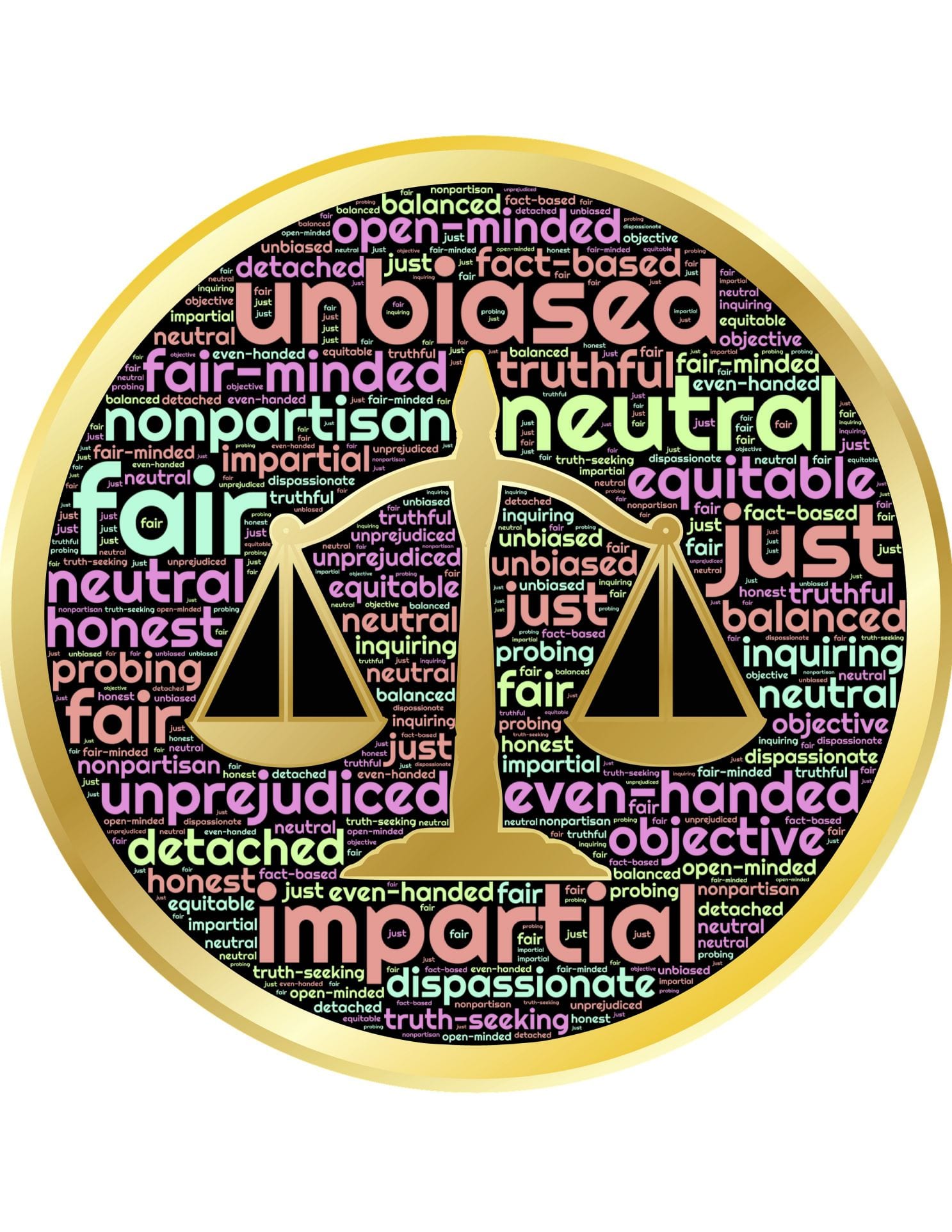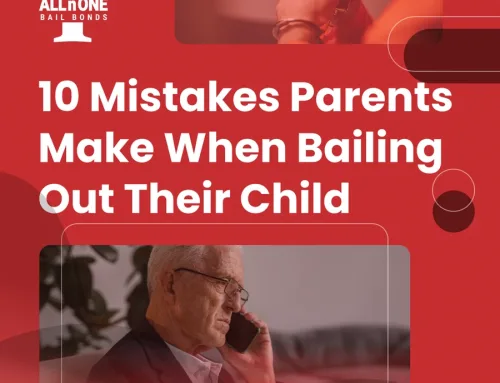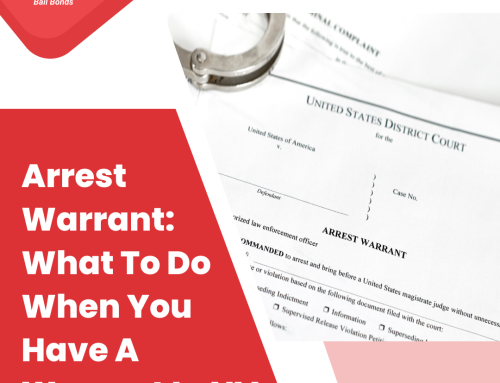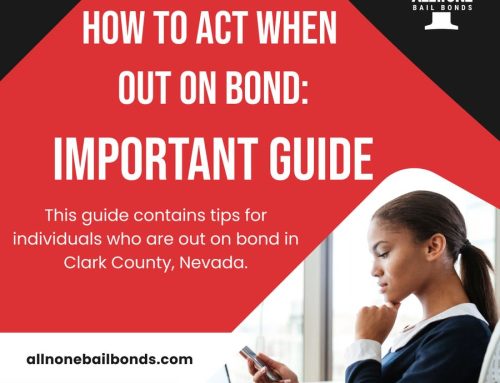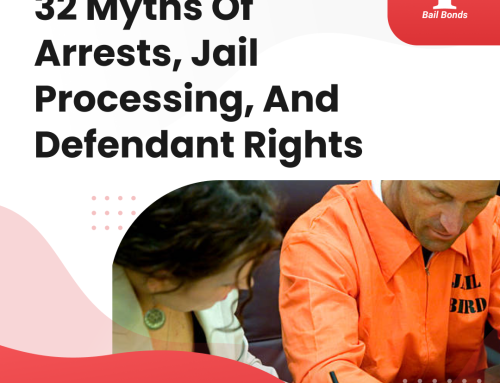Did You Know?
In 2020, nearly 2.3 million people were held in the U.S. criminal justice system, with most of them sitting in state prisons. However, this number does not capture the revolving door of the jail system, where 10.3 million people pass through each year.
In 2019, 84,269 people were arrested in Las Vegas alone. Many of those got out quickly because they obtained Las Vegas bail bonds, and some never went to trial. Unfortunately, false arrests and false convictions can still cause problems. To avoid getting stuck in jail after a false arrest, contact All n One Bail Bonds immediately! We can help get you out!
Otherwise, keep reading to find out what you should do if you’ve been falsely arrested in Las Vegas.
The Answer
You’ll want to contact an experienced bail bondsman and an attorney!
All n One Bail Bonds is available 24/7 to help you get out of jail quickly and safely back home.
How Many Innocent People Are Arrested and Convicted?
There is no single answer to this question as the term “false arrest” will have different meanings depending on who you ask.
However, generally speaking, a false arrest occurs when an individual is taken into custody without justification or when criminal charges are brought against them based on false information.
While it’s impossible to determine exactly how many people are falsely arrested and convicted, the numbers are much higher than zero, making it a concern. In one estimation, up to 1% of those convicted of a crime are innocent, meaning that thousands of people sitting in prison have not committed the crimes they were sent to jail for.
In 2020 alone, the Innocence Project used DNA analysis to successfully prove that 365 people sitting in prison were not guilty of their crimes, leading to their exoneration.
Of those, 10% had already spent 25 years or more in prison!
False Arrests Cause Harm:
Depending on the situation, a person may experience some form of damage as a result of their false arrest. In some cases, a person may suffer from psychological stress due to the fact that they were falsely accused of a crime.
Additionally, unjustified arrests can result in missed work or school opportunities, financial losses, and legal fees. For these reasons, individuals who believe they’ve been falsely arrested should seek help from a bail bondsman and an attorney.
No one wants to get arrested for a crime they did not commit, but sadly, it can happen.
What Are Some Common Methods Used To Falsely Arrest Someone By Police?
False Accusations
False accusations are some of the most common methods used to falsely arrest someone. Anyone can make a false accusation, including police officers, family members, friends, or complete strangers. There are many reasons why someone might make a false accusation, but often, it is motivated by revenge, anger, or a need for power. Police officers have made false accusations in the past, and it is not beyond the realm of possibility.
Making Up Evidence
Making up evidence is another common method used to falsely arrest someone. This occurs when the police officer either makes up their own evidence or uses existing evidence they know not to be true. This can be done by making up witnesses, inventing stories, or fabricating documents.
Witnesses can also fabricate evidence, in which case the police will falsely arrest the supposed perpetrator. This can result in innocent people spending time in jail away from their families.
Framing Someone
Framing someone is yet another way to get someone falsely arrested. Framing is used for various reasons, ranging from a police tactic to extract confessions to a political tool to suppress dissent or intimidate others.
It can also be done for more petty reasons, such as to make money, to get revenge, or because the accuser simply is a psychopath.
In order to frame someone, the perpetrator(s) must create a false story linking the person being framed to a crime. This can be done using circumstantial or direct evidence. Once they have the story in place, they can report it to law enforcement and have the person being framed arrested.
Planting Evidence
Planting evidence can also be used to falsely arrest someone. This can be done by planting drugs, weapons, or any other type of evidence. This method is often used when the person who is arrested doesn’t have anything on them that could incriminate them.
Anyone can plant evidence, regardless of their experience or relation to law enforcement. There are many ways to plant evidence, and it is often difficult to detect it. Witness testimony could also be “planted.” This is known as planting false witness testimony.
Using Intimidation or Coercion
Officers may resort to intimidation or coercion to falsely arrest someone. This can be done through threats of violence, making false accusations, or even using physical force. In recent years, there have been a number of high-profile cases where people have been falsely arrested and detained using these tactics.
The scenario usually plays out the same way: Police officers coerce an individual to confess to a crime he or she hasn’t committed. During the interrogation, the officers threaten to charge said person with more serious crimes if they don’t cooperate, and eventually, the person agrees to sign a confession. He or she is later released after it’s discovered that the confession isn’t truthful.
Another example is getting detained without justification. Usually, more than one officer will gang up on an individual and use intimidation tactics to coerce them into signing a false confession. The officers will claim the individual has implicated themselves in a crime. If the individual refuses to sign the confession, they will be detained without justification, although eventually, they will have to be released without charge.
Is It Illegal for the Police To Falsely Arrest Someone?
Yes.
In the United States, it is against the law for law enforcement officers to falsely arrest someone. If an officer arrests someone without having grounds to do so, that person can file a lawsuit against the officer.
False arrest is a criminal offense, and the officer who willfully commits this act can face serious consequences.
What Can Be Done To Avoid a False Arrest?
Here is what to remember.
Do Not Consent to a Search if the Officer Does Not Have a Search Warrant
When an officer asks for your consent to search your person or property, do not give it unless the officer has a valid warrant. A search without a warrant is illegal and can result in a false arrest.
If you are arrested, you may be able to file a complaint against the erring officer(s).
Disclaimer: This is not legal advice. Always be respectful and compliant with police officers while maintaining your rights. Contact an attorney for more information on how to properly proceed. We make no warranties or guarantees about the accuracy of this information.
Inform an Officer of Any Weapons You May Have on You
Police officers are trained to be observant and cautious. This means they are often on the lookout for potential threats or people who may have weapons on them. If you are carrying a weapon, it’s important to inform the officer so that you can avoid a false arrest.
Here are some tips for doing this:
- After informing the officer, follow there instructions to the letter.
- Speak clearly and slowly when informing the officer of your weapon. This will help ensure there are no misunderstandings.
- Do not try to resist an officer’s request to step out of the vehicle. This could lead to an altercation and possible detention or arrest.
Do Not Run When Stopped or Questioned
When you are stopped by a police officer, whatever you do, don’t run.
Running may be interpreted as an admission of guilt or may lead to additional charges, such as resisting arrest or evading police. Even if you are innocent, the last thing you want to do is panic and then make yourself look guilty for a crime you didn’t commit!
Always remain calm, and if you cannot answer a question or feel it would be in your best interest not to do so, you can politely state your intention to remain silent.
What Should You Do When You Are Arrested but Innocent?
Remember that you are innocent until proven guilty. Though it’s a scary thing to find yourself going to jail for a crime you didn’t commit, it is important to stay calm.
Police make false arrests for several reasons and not all of them are malicious. It could be a case of mistaken identity, either from the officers or the accusers. An arrest doesn’t necessarily mean you’ll be charged or convicted.
If you are taken into custody and you’ve done nothing wrong, take the following steps:
1. Don’t Answer Any Questions
The 5th Amendment of the U.S. Constitution gives you the right to remain silent. Do so. You do not have to answer any questions. No matter what the police ask, how angry they get, or what they promise you, politely refuse to respond. Make sure you tell your arresting officer that you are invoking your 5th Amendment rights.
2. Obtain an Attorney
You have the right to an attorney. If you can’t afford one, you may be able to obtain pro bono legal services through the state. Only respond to law enforcement’s questions in the presence of your attorney. Should the police deny you the opportunity to contact an attorney, any evidence they have may not be admissible in court.
3. Post Bail
Don’t stay in jail any longer than you have to. No matter what time you are arrested, you can obtain Las Vegas bail bonds from a trusted agency that offers 24 hour bail bonds. All n One Bail Bonds is open all day, every day of the week.
You don’t need to wait to get back home. Once you are out of jail, you can focus on proving your innocence with the help of an attorney.
4. Demand To See a Search Warrant
If you are falsely arrested at your home, and the officers demand to search your property, you can demand that they produce a search warrant. It is illegal for law enforcement to search your home without a warrant.
The search warrant needs to have:
- A statement of probable cause
- Identification of what the officers can look for
- A judge’s signature
If any of these items is missing, the warrant is not valid.
5. Gather Your Evidence
It’s unfair that you should have to defend yourself against a crime you never committed, but the more information you have, the easier it will be for your lawyer to uphold your innocence.
Begin to build your case by informing your attorney of people who can corroborate your innocence. These witnesses help establish your whereabouts and what you were doing when the alleged crime was committed.
6. Do Not Confront Your Accuser
If you know the identity of your accuser, you may feel like you can iron the whole situation out by talking to him or her. However, you should refrain from making any attempt to speak with the person who has wrongly accused you of a crime, even if you think it was done mistakenly.
Let the attorneys and the court system handle the details. They have the expertise required to navigate this type of situation.
7. Do Not Attempt To Defend Yourself in the Public Eye
Understandably, after being falsely arrested, you’ll want to clear your name, but we suggest staying quiet and working with your attorney behind closed doors.
Don’t discuss your case with anyone other than your attorney unless otherwise directed by your attorney. Don’t speak with friends or family members about it. Don’t discuss anything about the incident or your case with the media or anyone over the phone. Don’t post about it on social media.
This type of behavior provides the prosecutor with potential evidence to use against you in court.
8. Follow Your Attorney’s Advice
Your attorney is there to support and guide you through the process. He or she knows what to expect. They understand how the system works and what you can do to help establish your innocence. They also know what doesn’t work.
Follow your lawyer’s advice as you move through the process.
9. Be Patient
It can be difficult to let the process unfold after you’ve been falsely arrested. Just remember, it’s going to take time to muddle through. You’ll need wisdom and a big dose of patience.
It’s a stressful time, but your attorney can offer support and help you through it. We can also help by getting you out of jail as quickly as possible with a fast bail bond.
Where Can You Find Affordable Las Vegas Bail Bonds?
All n One Bail Bonds offers the best bail bond service in Las Vegas. We offer bail bonds 24 hours a day, seven days a week.
If you or someone you know needs a trusted bail bond agency, give us a call or begin our online bail application process.
Disclaimer: The information provided in this article is for general informational purposes only and should not be considered legal advice. It is always best to consult with a qualified attorney for personalized guidance on how to handle a false arrest. All n One Bail Bonds makes no warranties or guarantees regarding the accuracy or completeness of the information presented. Seeking professional legal counsel is strongly recommended to protect your rights and interests.

